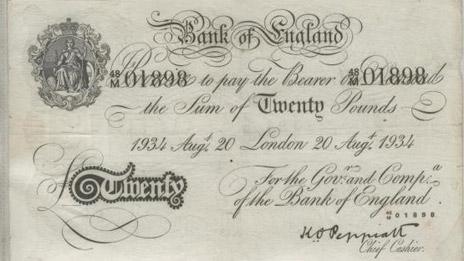Leeds link to Nazi bogus banknotes plot explored in new exhibition
- Published

Operation Bernhard was an exercise by Nazi Germany to forge British banknotes
The link between Leeds and a failed Nazi plot to ruin the British economy with bogus banknotes during World War Two is revealed in a new exhibition.
The Germans instructed teams of forgers to create counterfeit notes which could pass through banks undetected, with the aim of flooding the economy with fakes.
Some of the bogus bills using the Bank of England's Leeds branch serial number feature in the new city display.
Also on show are rare banknotes from when Leeds printed its own cash.
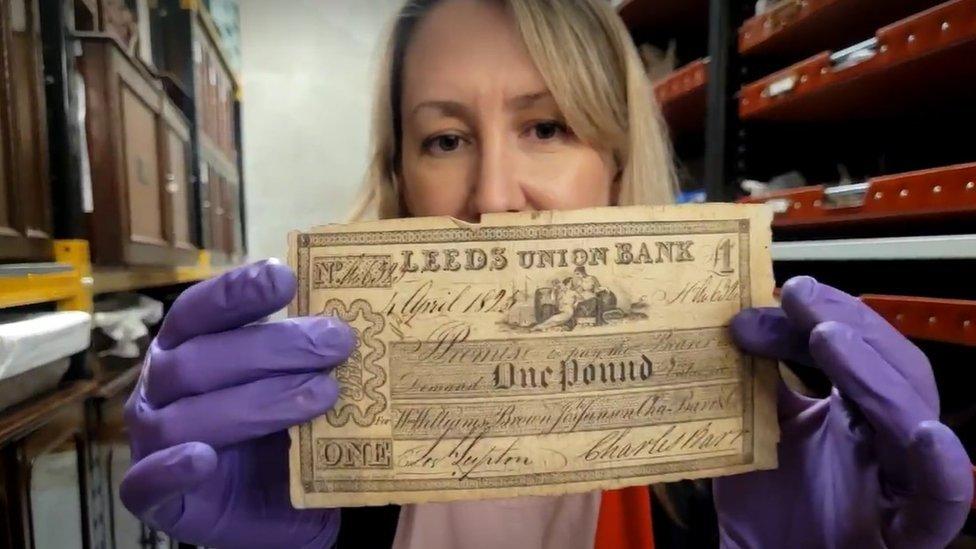
Old Leeds banknotes carry the branding of the city banking institution
Kat Baxter, curator of the exhibition at Leeds Museum looking at the evolution of money, said: "The Nazis counterfeited Bank of England notes from branches in Bristol, Birmingham, Leeds, Liverpool and Manchester.
"Banknotes had their own serial numbers. The Leeds branch serial number started with 138Vm and this was used on the fake notes."
Long before the Germans' bid to flood the country with fake bills, counterfeiting was already a common scourge on society, with the exhibition exploring the theme of fakes and forgeries.
West Yorkshire was a known hotspot for the crime, with goldsmith Arthur Mangey, who had a workshop in Briggate, hanged at York gallows in 1669 for coin-clipping.
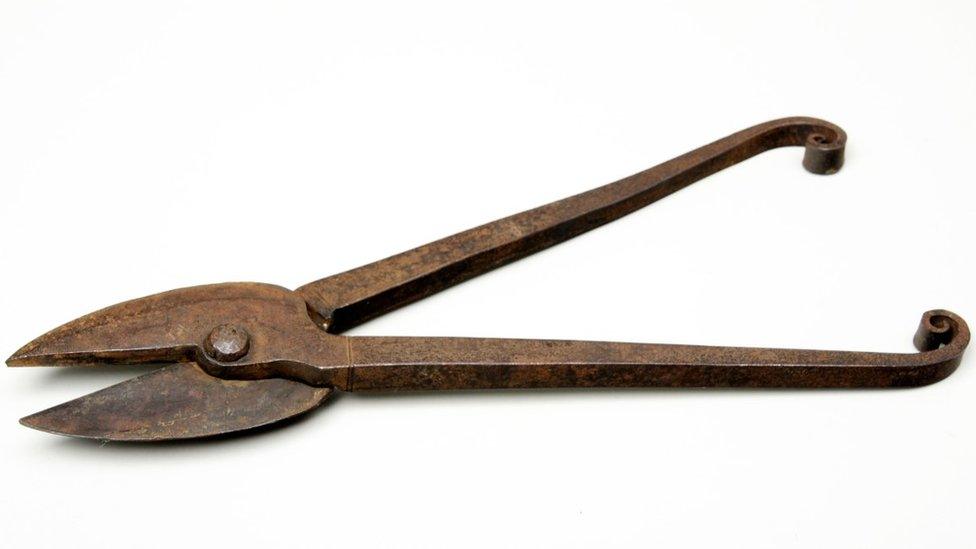
Arthur Mangey's coin clippers were found in a house he used to live in in Briggate, Leeds, after his execution
He was convicted on the evidence of George Norcross, a cobbler, who claimed to have worked alongside him.
Norcross said they had "great shears for clipping half crowns" and another pair "for clipping shillings and sixpences".
Mangey, however, always maintained his innocence and said the cobbler had framed him.
The exhibition also highlights how, in the days before the Bank of England had exclusive note-issuing powers, the city of Leeds printed its own cash.
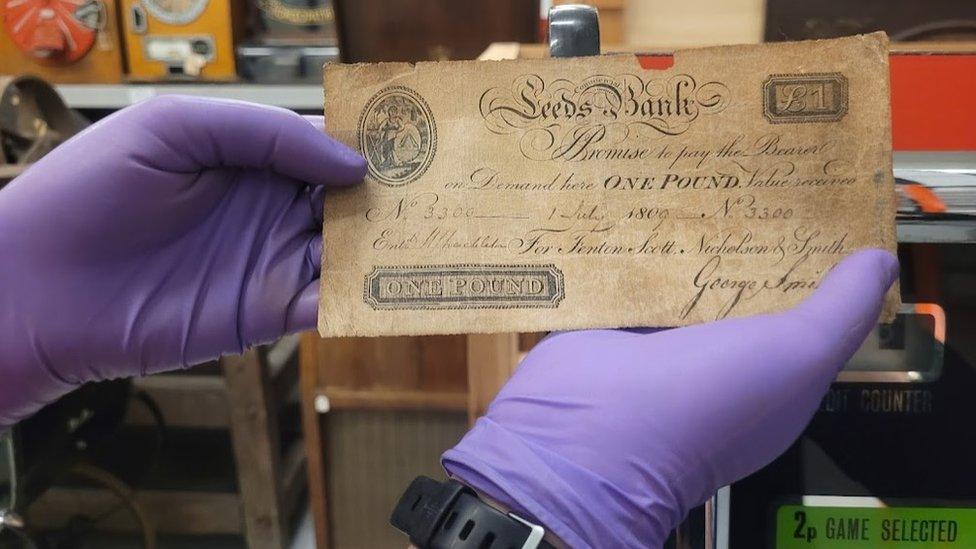
The passage of the Bank Charter Act in 1844 gave exclusive note-printing powers to the Bank of England
The notes, which were in circulation in the 1800s, featured the branding of the city along with the names of defunct institutions like The Leeds Bank and Leeds Union Bank.
Ms Baxter said such a practice was reserved for the wealthy elite and in the early days of commercial banking the notes would have been seen as a more reliable form of currency.
Leeds banknotes are not the only unusual form of currency from around the world to be displayed at the city's museum.
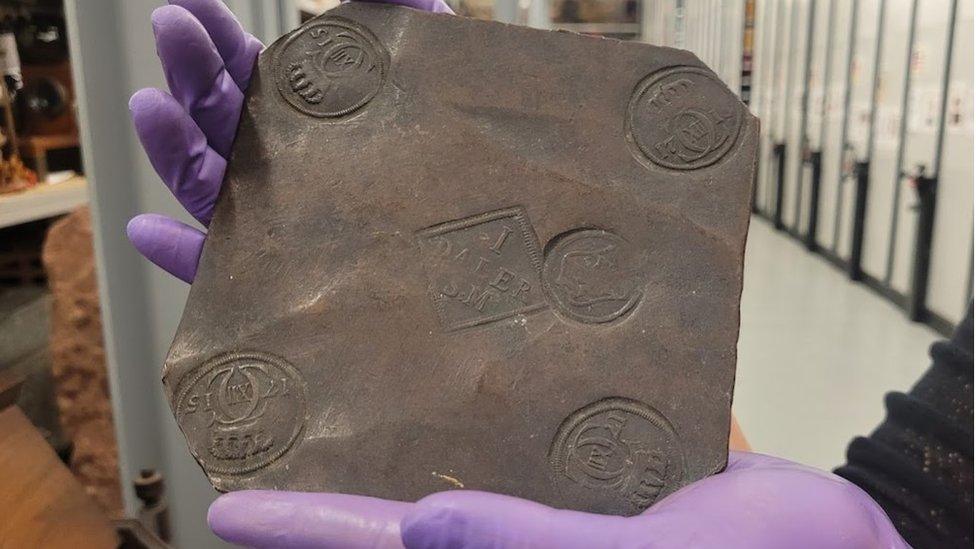
The size and weight of this plate money from Sweden eventually prompted it to become the first country in Europe to issue banknotes
Giant Swedish plate money, used in the 17th Century, illustrates that money really does come in all shapes and sizes.
The plates were rectangular pieces of copper, in some cases weighing several kilograms, making them difficult to use in everyday trading.
"Some of it was half a metre in length, so carrying that around would seem ridiculous to us now," Ms Baxter said.
"From that, we have gone almost full circle to the point where you don't need physical money at all.
"In an increasingly cashless society, more so from the pandemic, we use our phones or our smart watches and trade off each other's trust and acceptance that it works."
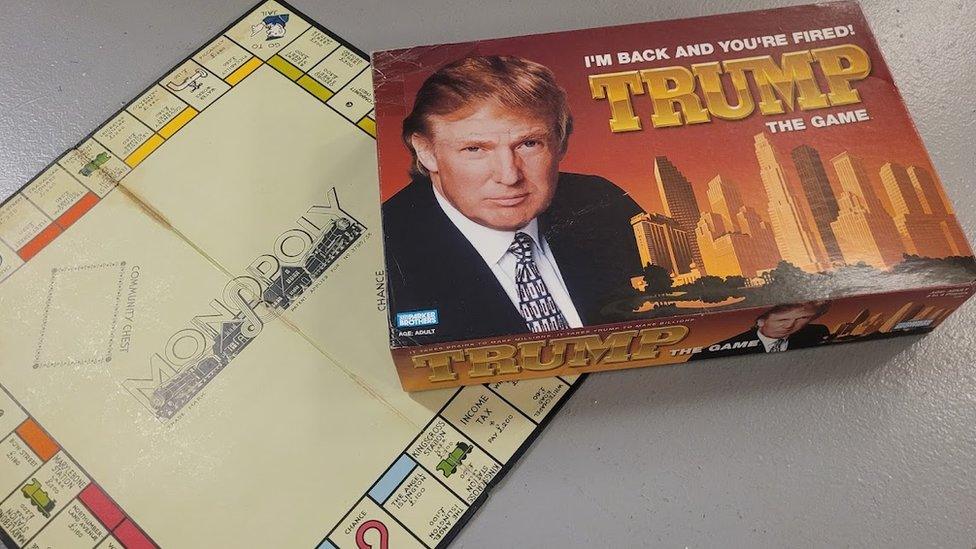
The Donald Trump board game sold poorly - unlike Monopoly which was once made in Leeds
The Swedish plate money features along with a one hundred trillion dollar bill issued by the Reserve Bank of Zimbabwe, which, despite its eye-watering amount, was worth very little because it was printed during a period of hyperinflation.
Other subjects covered in the exhibition include how money has been used in play, with a selection of cash-themed board games featuring the not-so-successful seller, Trump: The Game as well as the somewhat more profitable Monopoly, which used to be produced by Waddingtons in Leeds.
The Money Talks exhibition is on at Leeds Museum from 11 February.

Follow BBC Yorkshire on Facebook, external, Twitter, external and Instagram, external. Send your story ideas to yorkslincs.news@bbc.co.uk, external
Related topics
- Published17 February 2012
